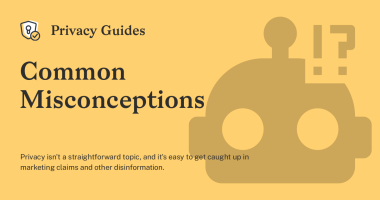Common misconceptions about privacy and security
cross-posted from: lemmy.world/post/10833312
Summary:
The article debunks several common misconceptions related to software security and privacy:
“Open-source software is always secure” or “Proprietary software is more secure”
First, it clarifies that whether software is open-source or proprietary does not directly impact its security. Open-source software can be more secure due to transparency and third-party audits, but there is no guaranteed correlation. Similarly, proprietary software can be secure despite being closed-source.
“Shifting trust can increase privacy”
Second, the concept of “shifting trust” is discussed, emphasizing that merely transferring trust from one entity to another does not ensure complete security. Instead, users should combine various tools and strategies to protect their data effectively.
“Privacy-focused solutions are inherently trustworthy”
Third, focusing only on privacy policies and marketing claims of privacy-focused solutions can be misleading. Users should prioritize technical safeguards, such as end-to-end encryption, over trusting providers based on their stated intentions alone.
“Complicated is better”
Lastly, the complexity of privacy solutions is addressed, encouraging users to focus on practical, achievable methods rather than unrealistic, convoluted approaches.


Add comment